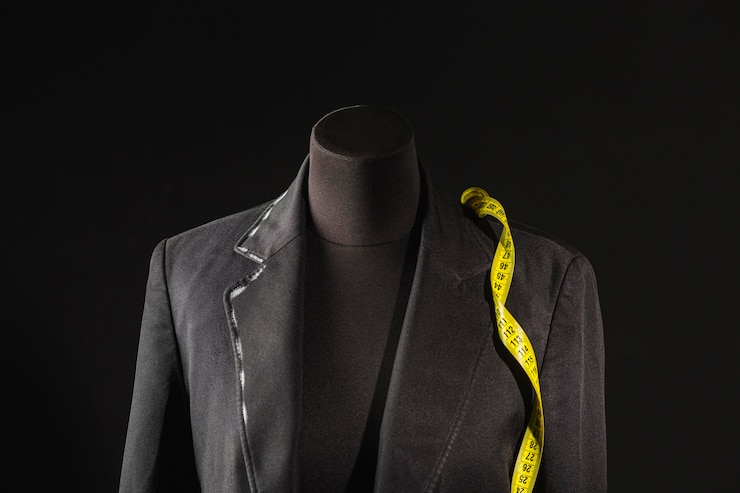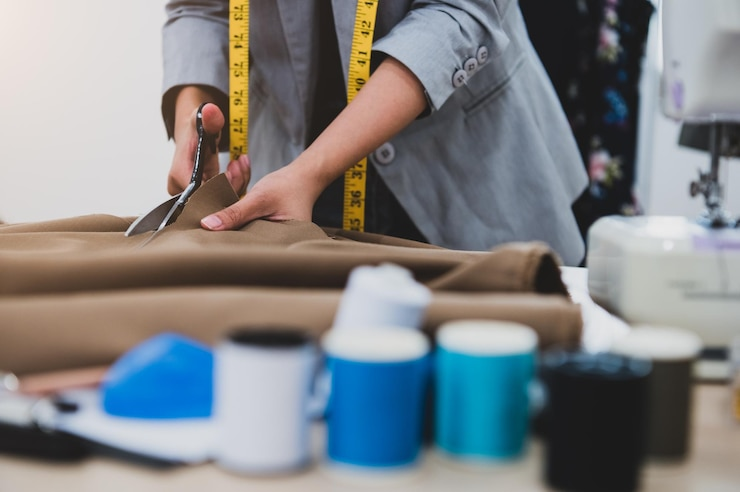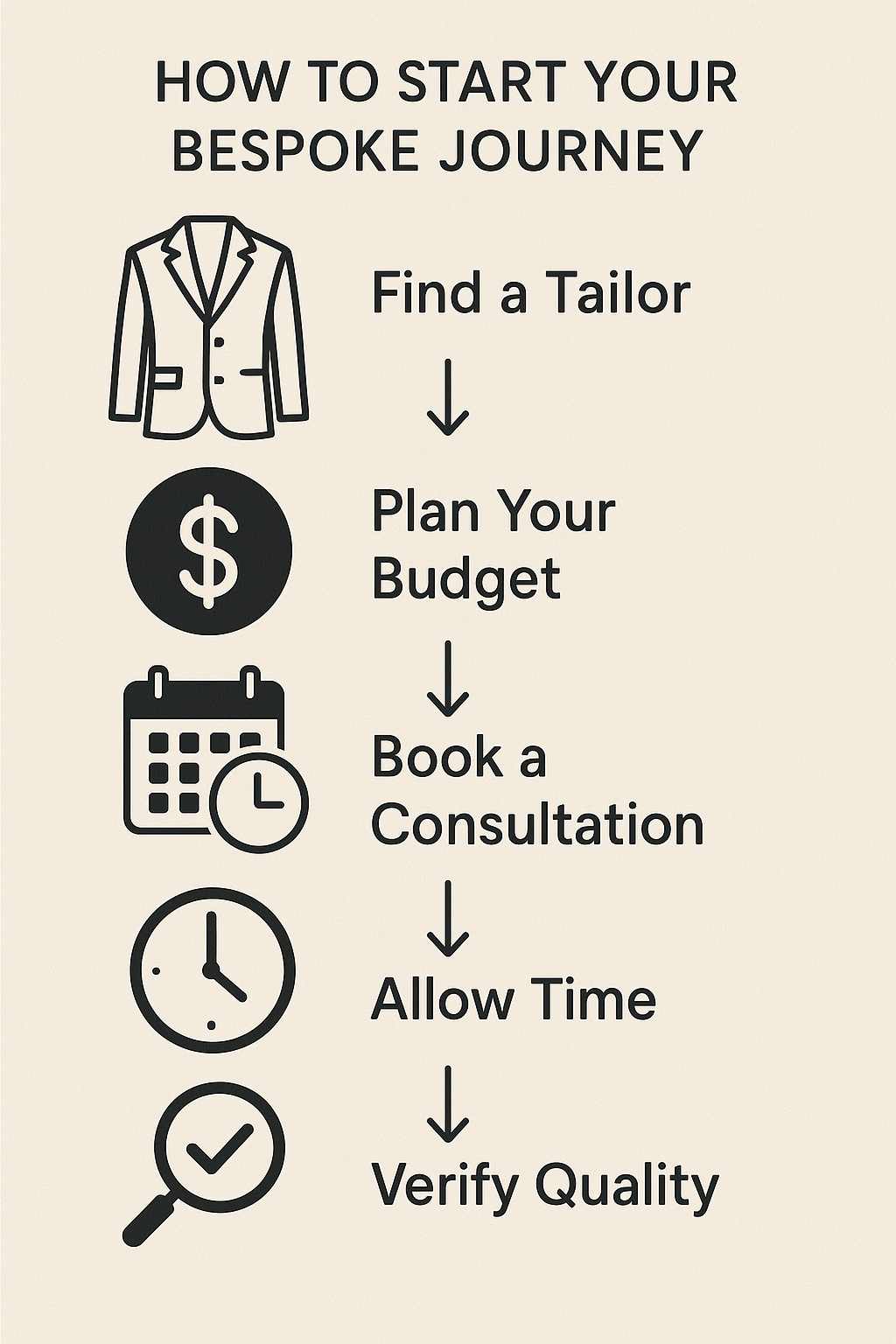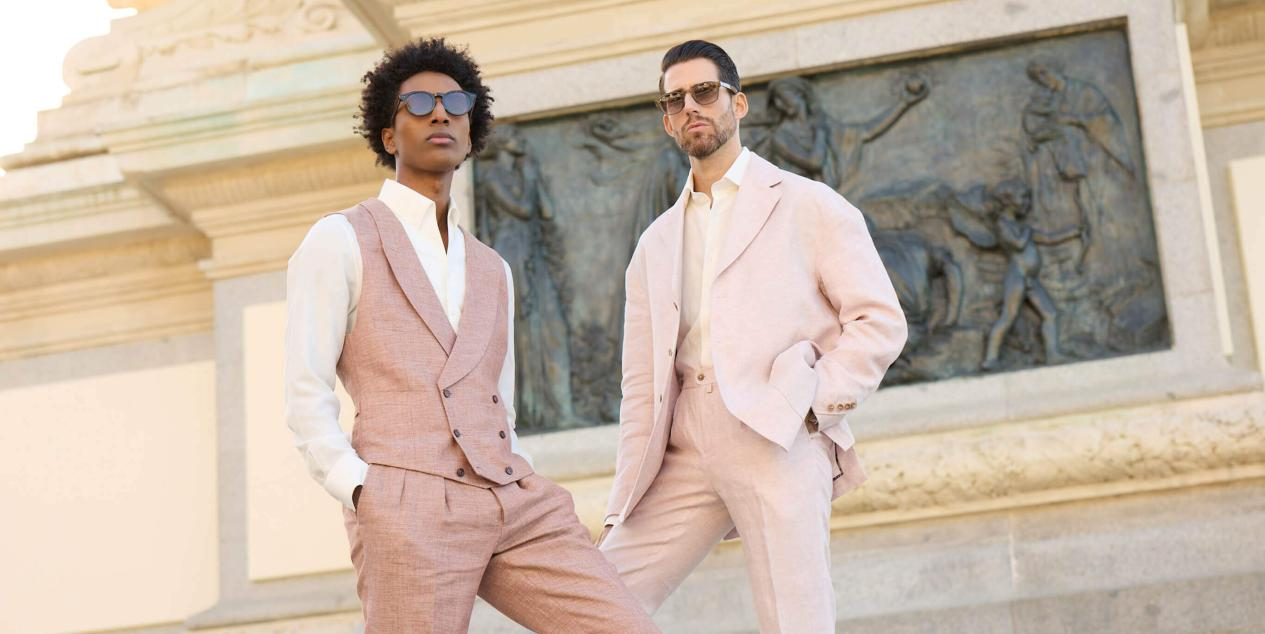
Bespoke clothing is custom-made apparel crafted through bespoke tailoring, designed to an individual’s exact measurements and style preferences, offering unmatched fit and personalization. Unlike ready-to-wear or made-to-measure, bespoke involves creating a unique pattern for each client, ensuring a one-of-a-kind garment.
Bespoke clothing matters because it solves common fashion frustrations: ill-fitting clothes, generic designs, and low-quality materials. For those with non-standard body types (e.g., tall, petite, or plus-size), bespoke ensures a flattering fit that off-the-rack clothing rarely delivers. It’s also a sustainable choice, as high-quality garments last decades, reducing the need for frequent replacements.
Beyond practicality, bespoke fashion offers a unique experience. Collaborating with a tailor to design a suit, dress, or even a custom shirt lets you express your individuality, making it ideal for weddings, career-defining moments, or simply elevating your everyday style. In a world of fast fashion, bespoke’s craftsmanship and exclusivity appeal to those who value authenticity and long-term value.
Bespoke clothing is crafted like a unique work of art, tailored exclusively for you. The process begins with a consultation, where a skilled tailor takes dozens of precise measurements and explores your vision—perhaps a bold fabric or a timeless cut. A one-of-a-kind pattern is hand-drawn, and the garment is meticulously cut and sewn using premium materials, such as fine wool or soft linen. Typically, the creation takes 8-12 weeks, during which you’ll attend 2-3 fittings to ensure perfection. At these fittings, any imperfections are carefully refined. Artisans invest extra effort in details like collars or cuffs, a labor-intensive process that captures the charm of bespoke clothing—resulting in a garment that perfectly reflects your style and brings your ideas to life. Ultimately, you receive a truly one-of-a-kind piece, unmatched anywhere else.

Bespoke is made for your body, fixing issues like loose shirts or tight skirts. Picture a suit that feels as comfortable as your favorite sneakers, tailored to your exact shape.
You’re in charge—choose fabrics, patterns, or even a special detail, like a coat with a lining inspired by a cherished memory.
Crafted with top-quality materials and meticulous techniques, bespoke lasts for years. For example, a high-quality custom-made dress will remain bright and intact even after being worn countless times.
· Off-the-Rack: Mass-produced clothes from stores are affordable but often fit poorly, especially for unique body types, and use materials that fade or tear quickly.
· Made-to-Measure: Adjusts a pre-existing pattern to your measurements, with some machine sewing, offering a better fit than off-the-rack but less customization.
· Bespoke: Creates a brand-new pattern with extensive handwork, giving you endless design options and a fit that’s unmatched, though it takes more time.
1. Find a Tailor: Look for experts in bespoke tailoring with excellent reviews and portfolios showcasing diverse styles. Visit their studio to see their craftsmanship, like hand-stitched seams or custom designs.
2. Plan Your Budget: Discuss pricing with tailors to understand costs based on fabric and complexity. Start with a versatile piece, like a tailored blazer, for maximum wear.
3. Book a Consultation: Share your goals (e.g., a wedding suit, everyday dress) and bring inspiration, like photos or sketches. Ask about fabric options and care.
4. Allow Time: Expect 8-12 weeks, including fittings. Plan ahead for events like galas or interviews.
5. Verify Quality: Choose tailors with industry recognition or strong client testimonials to ensure top-notch work.

The cost of bespoke clothing varies depending on the tailor, fabric, and design details, making it hard to pin down a universal price. To get accurate pricing, contact reputable tailors directly for quotes—many offer free consultations or pricing guides on their websites. You can also explore online bespoke platforms, like those specializing in suits or dresses, which often list starting prices or customization options. Comparing quotes from multiple tailors and asking about fabric choices (e.g., cotton vs. luxury wool) will help you find a price that fits your budget.
Yes, bespoke fashion goes far beyond custom formal suits. Tailors craft women’s pieces, from elegant gowns to tailored trousers, with designers showcasing bespoke’s versatility. Casual bespoke, such as custom casual wear like custom jeans or relaxed jackets, is also popular for everyday style.

Absolutely—bespoke clothing is eco-friendly because its durable designs last decades, reducing the need for frequent replacements. Many tailors use sustainable fabrics, like organic cotton or ethically sourced silk, helping you build a wardrobe that’s kind to the planet.
Select a tailor with a solid reputation, backed by online reviews and a portfolio of custom work. Visit their workshop to check for quality details, like hand-stitched linings or precise cuts. Ask about their experience, fitting process, and any industry endorsements, such as affiliations with tailoring guilds. Avoid tailors who rush or offer limited design choices.
Bespoke clothing offers a perfect fit, personal creativity, and sustainable quality, making it a transformative choice for anyone tired of ordinary fashion. Whether it’s a suit that boosts your confidence or a dress that feels like you, bespoke lets you wear your story. Reach out to a trusted tailor or browse online options to start creating a wardrobe that’s uniquely yours.